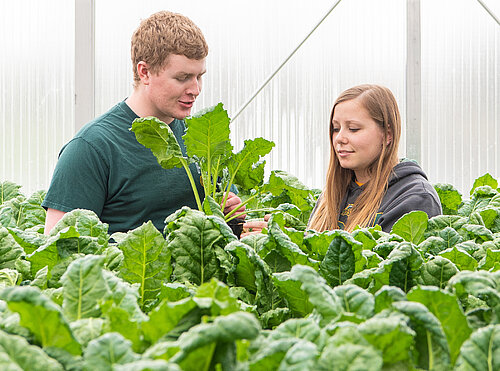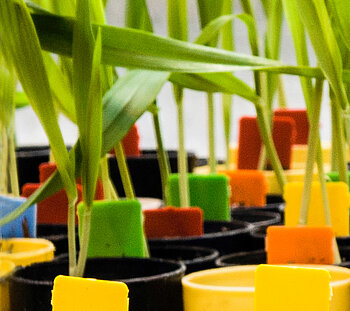Agricultural Field Lab

North Dakota State University has been at the forefront of agricultural innovation since 1890, when it was founded as an 1862 land-grant research institution. As NDSU agriculture leaders look to the future, they are proud to announce the upcoming construction of a new Agricultural Field Lab, which will replace many of the current field lab facilities constructed decades ago.
Currently, field lab activities are housed in Waldron Hall, Wiidakas Hall, Potato Research, and Lord and Burnham Greenhouses. The construction of a new field laboratory will provide NDSU scientists with the space, equipment, and technology to drive innovation in several key areas related to the state’s agricultural industry, including plant breeding, agronomy, weed science, plant pathology, and natural resource sciences. This will empower NDSU and the North Dakota Agricultural Experiment Station to continue to provide cutting-edge, research-driven solutions for the benefit of North Dakota farmers and the industry.
NDSU is seeking up to $10 million in philanthropic support by Dec. 31, 2023, to bring the vision for this state-of-the-art Agricultural Field Lab to life. These philanthropic dollars will partner with $87 millionin funding from the North Dakota State Legislature, appropriated during the 2023 legislative assembly.
North Dakota leads the nation in producing the following commodities: all dry beans, pinto beans, canola, flaxseed, honey, dry edible peas, durum wheat, and spring wheat, and is in the top five in several other commodities (USDA 2022 report on 2021 production). To continue to prosper, the state, and region, needs trailblazing researchers equipped with modern facilities who will work to find innovative solutions, benefiting crop production today and well into the future.
Research Program Facilities
NDSU’s agronomic and plant sciences research programs need four types of facilities to maintain top-level research effort and productivity. These include:
- Greenhouse space, such as the Jack Dalrymple Agricultural Research Complex
- Wet laboratories and molecular biology laboratories, which exist in various buildings on campus
- End-use quality, housed in the Peltier Complex which is slated to open in the spring of 2024
- Field lab facilities, which are currently spread across more than four campus buildings that do not meet the needs of modern research programs

Accelerating Agricultural Solutions
Investing in the NDSU Agricultural Field Lab Expansion will support pioneering research meant to prepare producers and commodity groups to succeed in farming’s new frontier. If you are considering this meaningful giving opportunity, please know that your gift will:
- Accelerate hands-on research, education, and programming related to agronomy, plant science, plant pathology, plant breeding, horticulture, and soil science;
- Help NDSU recruit and retain top-ranked scientists trained in disciplines specific tothe needs of agricultural systems in North Dakota and the region, including a variety of different crops specific to regional growing conditions;
- Consolidate field lab programs currently housed in four separate buildings across campus, creating integrated research spaces that will enhance productivity across the entire NDSU agriculture research enterprise for faculty, staff, and students;
- Give NDSU researchers a competitive edge as they apply and compete for grants that will develop the research solutions needed to help North Dakota agriculture continue to thrive for decades to come; and
- Support the pursuit of advanced research that has a beneficial impact on the biggest economic sector in the state.


